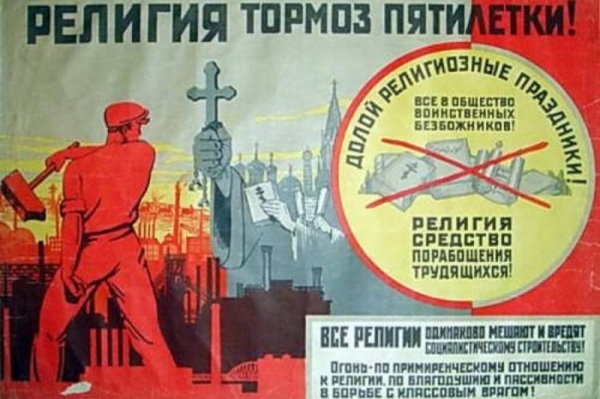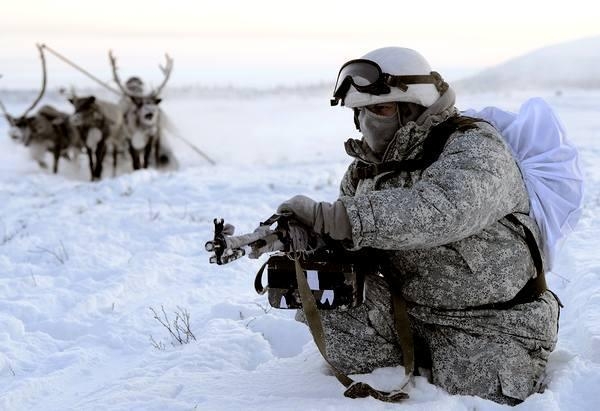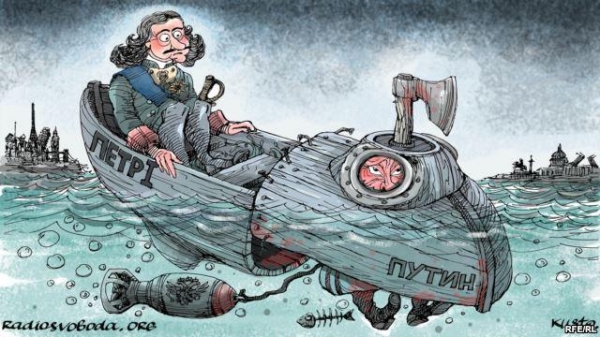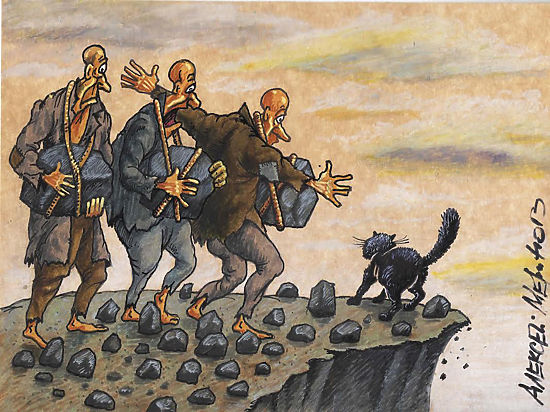
German politicians once believed in peaceful partnership with Russia, but now it’s gone, says a leading world economic journal.
In his colorless suit Angela Merkel seemed to be a gray mouse, which I was ashamed to look in the eyes of society, after she had cowardly allowed to begin the investigation into the case of actor-comedian insulted the President of Turkey. She was the epitome of hypocrisy and double standards. Its immigration policy has been an act of political suicide, which in Germany has gained momentum, the neo-fascists … And so on and so forth.
In such a mocking tone of Russian state television last week portrayed the Chancellor of Germany. Still no leader in post-Communist Germany did not come under such fire from the Russian propaganda machine.
Only a few years ago, Russia was considered Germany as one of its closest allies. Recent public opinion polls show that an increasing number of Russians see it as the enemy.
Unlike Gerhard schröder, the former German Chancellor who now works for Putin as a lobbyist, Merkel was persistent ideological opponent. She took a strong stance against Russian aggression against Ukraine and the campaign of lies launched to the aggression to legitimize. It tells one of the assistants Merkel, a turning point for her was Putin’s false denial that the “green men” who seized Crimea were Russian soldiers. In turn, because of the commitment to Merkel was a completely alien figure to the Kremlin, acting in the postmodern vein, when there is no concept of fact and truth.
Putin knows how to skillfully exploit the weaknesses of other countries. Now the Kremlin is trying hard to increase the political damage inflicted Angela Merkel and her policy of openness towards refugees. “Putin is doing everything to overthrow Merkel, and also a lot of tools,” — said the expert of the analytical center of the Berlin Council on foreign relations Stefan Meister.
One of these tools — television, targeted at the domestic audience and Russian-speaking population worldwide, including three million people in Germany. In January, Russian First channel told the story of thirteen-year-old girl of Russian-German origin, allegedly abducted and raped by a group of immigrants in Berlin. This report provoked the protests of Russian-speaking residents of Germany and anti-Muslim activists. Soon the German police found out that the story was fictional, but Russian television has continued to make reports on this subject. Foreign Minister Sergei Lavrov has accused Germany of concealing the crime.
<blockquote style=”background-color: #fcfcfc; font-family: ‘Helvetica Neue’, Arial, Helvetica, sans-serif; font-size: 13px; color: #000000; line-height: 16px; text-align: left;”>
In topic: tough Steinmeier said Lavrov for “girl Lisa”
</blockquote>

Members of the anti-immigration movement PEGIDA in Munich. Photo: Matthias Schrader / AP / East news
<blockquote style=”background-color: #fcfcfc; font-family: ‘Helvetica Neue’, Arial, Helvetica, sans-serif; font-size: 13px; color: #000000; line-height: 16px; text-align: left;”>
Topic: Henry Groat showed Germany “gruel”
</blockquote>
Blatant cheating, which turned out to be the so-called “Lisa”, shocked the German society. Before Russia used a similar tactic in the war against Ukraine, but in Germany, never. “The Russians have gone too far,” said Meister. — They almost lost the confidence of the German establishment”.
“Before, I considered Russia a strategic partner and a competitor — the Deputy of the Bundestag from Merkel’s party CDU Robert Kiesewetter. Now it has become a potential enemy.” Even proponents of Ostpolitik — Eastern policy”, the traditional German lines on a compromise with Russia — mostly members of the center-left Social democratic party (SPD), Junior partner of the CDU in the ruling coalition, was disappointed.
The few who retained sympathy for Russia, as, for example, scientific Director of the Berlin German-Russian forum Alexander Rahr, can only appeal to deeply rooted in their country fear of war. “The most important issue now is not Ukraine, and preventing a third world war,” says Rahr.
Once Russia had hoped that the business ties with Germany will strengthen the relations between States.
In the list of trading partners Germany, Russia places below the Czech Republic. Before the European Union imposed sanctions against Russia, it accounted for 4% of German foreign trade, now it has shrunk to 2.4%.
“Our primary goal is to show that we will not accept violations of the postwar order,” — said the Director of the business Association BDI Markus Kerber.
The Kremlin tried to persuade the SPD to split the ruling coalition. Last autumn Putin received in Moscow of the leader of the SPD Sigmar Gabriel and tried to persuade him to approve the construction of the Nord stream-2 gas pipeline bypassing Ukraine and the Baltic States. This project may be blocked by the EU. One of the advisers to Merkel in a private conversation said that she “would be happy if the project will be minimized”.
More likely than the construction of the pipeline, looks like the lifting of sanctions in July. If this happens, it will be Putin’s victory and the defeat of Merkel. But German foreign Minister Frank-Walter Steinmeier, an SPD member, defends a more flexible cooperation with Russia, arguing that without it “you cannot resolve none of the major international conflicts”. However, he avoids to say that Russia itself has been the cause of many of these conflicts.
Putin maintains relations with the extreme right and extreme left parties in Germany. One of his allies, far-right party “Alternative for Germany” (Alternative für Deutscland, AfD). Another ally — the former Communist Left party (Die Linke). Many supporters of the xenophobic Pegida movement are also sympathetic to Putin. The participants of the anti-immigrant rallies last year in Dresden, where Putin in the 1980s, he worked as a KGB officer, waved Russian flags and chanted: “Help us, Putin!” The activity of the Russian propaganda in Germany forced the German intelligence BND to investigate.
<blockquote style=”background-color: #fcfcfc; font-family: ‘Helvetica Neue’, Arial, Helvetica, sans-serif; font-size: 13px; color: #000000; line-height: 16px; text-align: left;”>
Topic: the Stakes of the battle in Ukraine is enormous. Fascism returns to the continent it once destroyed
</blockquote>
However, Merkel knows that the hostility to Putin it is not just the actors but out of weakness.
At the now legendary meeting with the Chancellor a decade ago, Putin, knowing that Merkel is afraid of dogs, admitted in the room of your Labrador. Merkel came to a standstill, Putin grinned. The Chancellor, who grew up in East Germany and is fluent in the Russian language, understood perfectly the language of Putin. “I understand why he needed to do this — to prove he’s a man,” she said to a group of reporters after the meeting. — Russia has nothing, no successful politics or economy. All that they have — this.”
<blockquote style=”background-color: #fcfcfc; font-family: ‘Helvetica Neue’, Arial, Helvetica, sans-serif; font-size: 13px; color: #000000; line-height: 16px; text-align: left;”>
The topic: Putin: rudeness as a public policy tool and “business card” of the Kremlin
</blockquote>

Vladimir Putin and Angela Merkel during a meeting on 21 January 2007. Photo: Dmitry Astakhov / TASS
Original article: “If you fool me once… Russian-German relations deteriorate”, The Economist
Translation published on the website Open Russia








